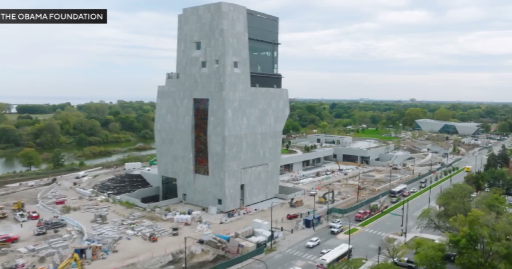Court Splits Over Redevelopment Funding
SACRAMENTO (AP) — Gov. Jerry Brown and state lawmakers have the authority to eliminate community redevelopment agencies but not force them to redirect their taxes to local services, the California Supreme Court ruled Thursday in a decision that will likely send both sides back to negotiations.
The state will be able to save more than $1 billion in this year's budget by eliminating about 400 redevelopment agencies, but it will not get an estimated $400 million a year thereafter from money that would have been set aside by agencies to continue operating. The state, which is heading into the new year with a $13 billion shortfall over the next 18 months, had initially estimated the current-year savings at $1.7 billion.
The justices said because the state Legislature authorized the creation of redevelopment agencies, it has the power to eliminate them and called it "a proper exercise of the legislative power vested in the Legislature by the state constitution." But the court invalidated state legislation that diverts redevelopment funding, calling it "flawed."
"Today's ruling by the California Supreme Court validates a key component of the state budget and guarantees more than a billion dollars of ongoing funding for schools and public safety," Brown said in a statement.
Thursday's ruling was highly anticipated because it was a key component of balancing the state budget by eliminating redevelopment agencies, which primarily are controlled by cities and counties to promote construction projects and revitalize blighted districts. While the court allowed the state to dissolve redevelopment agencies, the Legislature had intended to keep redevelopment agencies going by requiring payments to schools and other local services.
The decision handed down Thursday said the state cannot argue those redevelopment payments are voluntary if the payments are a requirement for redevelopment agencies to continue operating.
Assembly Speaker John Perez, D-Los Angeles, said the court handed the Legislature mixed results.
"The Supreme Court validated the Legislature's action to eliminate existing redevelopment agencies, but we are disappointed that they blocked the creation of smaller, more targeted redevelopment agencies that fully funded affordable housing," he said in a statement.
San Diego Mayor Jerry Sanders called it a "sad day" and San Jose City Attorney Richard Doyle called the ruling a disappointment but not a total surprise, given the judges' reactions during arguments in November.
"We had obviously disagreed with the decision. Our position was that both laws ought to be thrown out," Doyle said.
Sanders and Doyle said they hope local governments will be able to strike a compromise with the Legislature and the governor that would allow redevelopment agencies to continue operating, which will create jobs. Doyle said the decision will not have an immediate hit on the city's budget, since officials had accounted for the elimination of redevelopment agencies in its budget plans.
The California Redevelopment Association vowed to work with lawmakers to revive redevelopment agencies. The association and cities had argued the move was illegal under Proposition 22 in 2010, which banned the state from raiding local government funding.
Supporters say redevelopment agencies are among the most powerful tools available for local governments to revitalize communities. They have pointed to the successful renovation of downtrodden areas like around Oakland's Fox Theater, refurbished historic districts and financed public work projects.
But audits have revealed some agencies have misused the funds, a portion of which is intended to be used for low-income housing.
Redevelopment critics noted the city of Palm Desert spent $16.7 million in redevelopment funds to upgrade a luxury golf course, the San Francisco Bay area city of Hercules used affordable housing money to hire a lobbyist, and Montebello spent $31 million on — among other things — fancy dinners in Las Vegas, golf and embroidered polo shirts.
The justices heard arguments from both sides and split the decision by affirming the state's right to eliminate redevelopment agencies. But they upheld Proposition 22, saying the state could not force payments from the agencies as a way for them to remain in business.
The governor and supporters of the law say redevelopment agencies have become little more than slush funds for private developers, and they want the tax money generated by new developments to be diverted from the agencies to local services and agencies.
Local government officials say it does not make sense for the state to eliminate redevelopment agencies, which contribute $2 billion a year in economic activity. They say the agencies are their main vehicle to rebuild communities and create jobs.







